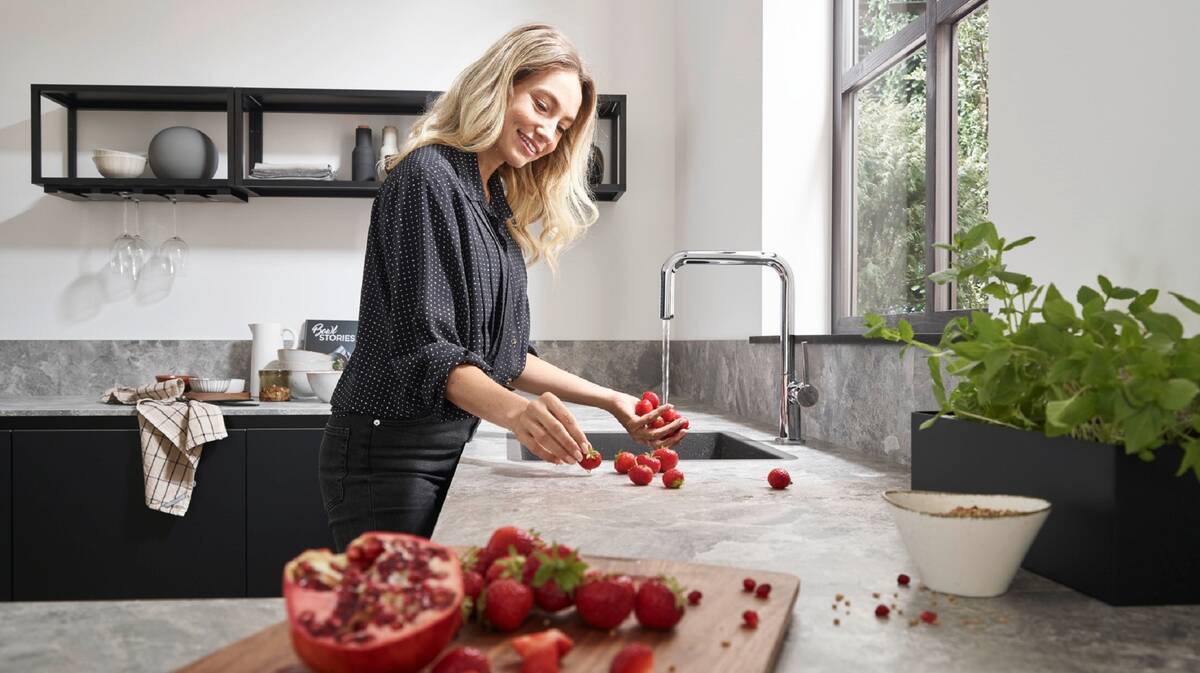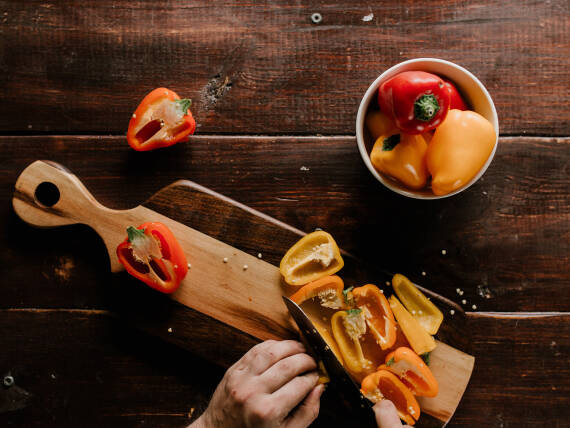Tips for flawless work
Hygiene in the kitchen: 8 tips for safe handling of food
The classic: You used the same knife to cut raw chicken and the vegetables for the salad. Even a small slip-up like this can have serious consequences for your health. Anyone who has ever had an upset stomach or food poisoning can relate. That is why it’s important to pay attention to good hygiene in the kitchen. Learn about our practical recommendations for cleanliness and how to put an end to bacteria with the right surface coating here.

8 important hygiene rules for the kitchen

The cleanliness and hygiene of our work area in the kitchen depends primarily on our behavior. We advise the following eight tips when preparing and handling food.
1) Wash your hands before cooking
To prevent bacteria from spreading from the table or jumping over to your food, you should wash your hands before cooking. And if you want to work with other foods after preparing sensitive foods like meat or raw eggs, you should wash your hands again. This will help you prevent the transmission of things like salmonella.
2) Always rinse kitchen utensils thoroughly
When cooking, always use different cooking spoons or other utensils for raw ingredients and ingredients you're going to cook. This will prevent bacteria and flavors from unintentionally spreading to other dishes.
3) Pay attention to cleanliness and tidiness
Tidying up is the order of the day after cooking, roasting, and baking. This not only creates a pleasant atmosphere, it also makes it more difficult for food moths and other pests to move in.
4) Clean dishes and cutlery at high temperatures
To ensure that all items are free of bacteria, rinse at a minimum of 60 degrees Celsius (140 degrees Fahrenheit).
5) Store raw and cooked food separately
Designate one shelf in the refrigerator for cooked food, and another for raw food. This will prevent bacteria like salmonella from passing from raw ingredients to cooked ones.
6) Note the cooling chain for frozen foods
Just a little defrosting can be enough to spoil frozen fish, so make sure that the cold chain isn’t interrupted between purchase and storage in the freezer.
7) Always pay attention to the shelf life of food products
If the sell-by date for flour has expired, you don’t have to worry; it’s still edible. But for animal products, you should always take a look at the best-before date.
8) Keep pets out of the kitchen as much as possible
Hygiene rules should also apply to dogs and cats in the kitchen. They are carriers of diseases, which is why they shouldn’t get too close to food and dishes – and animal hair in food isn’t too appetizing, either.
On top: Have your work surfaces coated
In addition to the precautions you should take when cooking every day, you can improve the hygiene in your kitchen at a much more basic level: When choosing a countertop, look for an antibacterial coating.
Of course, you can also regularly clean and wipe the countertop with a cloth. But if the bacteria collects in the dishcloth, the effort is moot. You can also have an antimicrobial hygienic coating applied to the kitchen countertop, or even shelves and fronts of kitchen cabinets.
When choosing a coating, be sure to check its food compatibility or seek professional advice.
It’s up to you: Hygienic cooking with simple tips
When planning a new kitchen, you can already take steps towards higher hygiene standards by choosing an antimicrobial coating for your countertop. Then, if you then follow the most important hygiene tips, you’ll be able to work flawlessly with fruit, vegetables, and meat.
Frequently asked questions about hygienic cooking
If you're working with raw animal products, you should ensure strict separation from other foods that you want to enjoy uncooked. This will prevent contamination with bacteria such as salmonella.
Between purchase and storage in the refrigerator, refrigeration should not be interrupted for perishable foods, especially meat and fish. Otherwise, the food can easily spoil.
Store cooked and raw foods in different trays to prevent bacteria from spreading to cooked foods.
Dishes, cutlery, and other cooking utensils should be cleaned at a minimum of 60 degrees Celsius (140 degrees Fahrenheit) to kill all bacteria.
Regular cleaning with a cloth is the number one rule. Antibacterial coated countertops provide even more hygiene in the kitchen.
Trusted partners